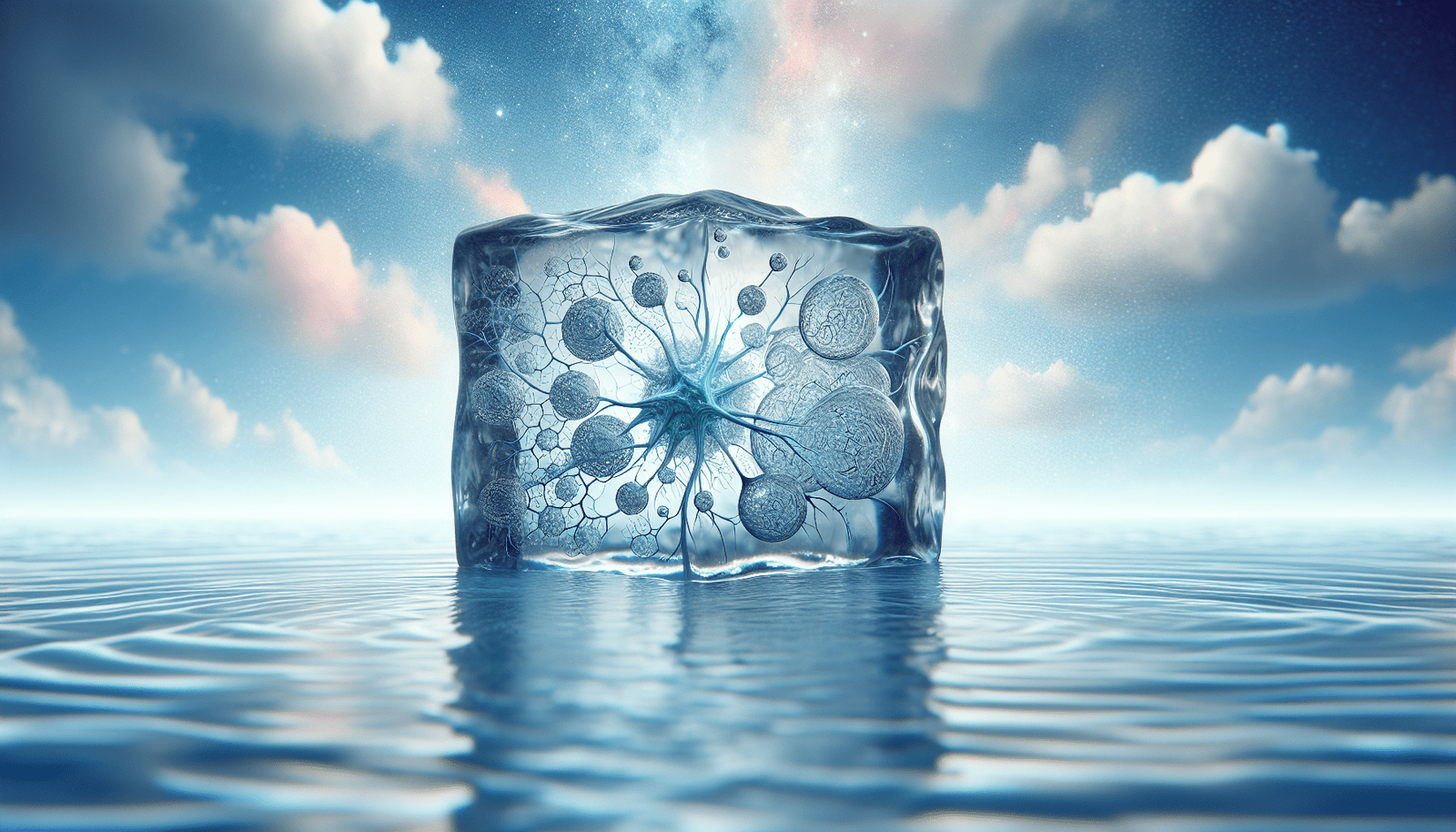Have you ever wondered why immersing yourself in icy waters could possibly be good for you? The thought may send shivers down your spine, yet there’s a growing body of scientific evidence that suggests cold plunges do more than just wake you up. Aside from the invigorating jolt to your senses, these icy dips could be behind some significant cellular benefits—a whisper of renewal underneath the temporary discomfort.
Understanding Cold Plunges
What Are Cold Plunges?
Cold plunges, also known as cold-water immersion, involve submerging the body in very cold water—typically between 50 to 59 degrees Fahrenheit (10 to 15 degrees Celsius). These are not just for thrill-seekers or spa enthusiasts; they’re part of athletic recovery regimens and traditional practices in various cultures around the world. You might picture yourself bracing against an icy rush or envision athletes rehabbing after intense games, but cold plunges are gaining attention for their health benefits beyond immediate physical recovery.
Why Do People Take Cold Plunges?
You might question who in their right mind would willingly face freezing water, yet there’s motivation beyond the shock factor. People take cold plunges for possible benefits like improved circulation, increased energy, and expedited recovery from physical strain. There’s also a refreshing, invigorating feeling, a sense of accomplishment, and a connection with primal elements. But can these short bursts of cold really do much more at a cellular level?
The Biology of Cold Exposure
The Body’s Physiological Response
When you take the plunge into cold water, your body springs into action. The immediate response includes vasoconstriction, where blood vessels tighten to conserve heat, sending blood to core organs, and a brisk increase in heart rate. These responses can stimulate deeper breathing, improve cardiovascular function, and even spark an adrenaline rush.
The Role in Cellular Repair
More than just surface-level reactions, cold exposure might encourage cellular repair mechanisms. The shock of the cold can induce a state known as hormesis. By exposing your body to a stressor (in this case, cold), it triggers adaptive beneficial responses. Think of it like strength training for your cells—cold plunges might help them become stronger and more resilient by stimulating protective pathways.
Delving into Cellular Repair
What Happens to Cells Under Stress?
Cells are more resilient than they seem, possessing remarkable abilities to repair and renew. When faced with stress, cells can activate defensive mechanisms, including repairing damaged proteins and removing dysfunctional organelles. This process, known as autophagy, helps maintain cell vitality and function.
How Cold Affects Cellular Repair
Cold exposure may enhance these cellular repair processes. The abrupt chill from cold plunges could stimulate autophagy, a sort of cellular housekeeping. Additionally, cold exposure might encourage the production of heat shock proteins (HSPs), which protect cells by stabilizing new proteins and repairing damaged ones. Like a team of skilled artisans restoring an old masterpiece, these proteins help preserve cellular integrity during times of stress.
| Function | Impact of Cold Exposure |
|---|---|
| Autophagy | Increased cellular cleaning and renewal |
| Heat Shock Proteins | Stabilization and repair of cellular structures |
The Link to Longevity
Cold Plunges and Lifespan
You might be curious about how this ties into living longer or healthier. With aging, cellular repair mechanisms can slow down, potentially leading to degenerative conditions. By stimulating cellular repair, cold plunges could theoretically support longevity. Research in animals and observations in cold-exposed populations suggest potential associations between cold exposure and extended lifespan.
Supporting Evidence for Humans
Although exact studies in humans are limited, anecdotal evidence and indirect studies provide intriguing insights. Some longevity communities incorporate cold exposure as part of broader lifestyle practices. While further research is necessary, early indications point towards possible benefits in slowing down aging processes through cold exposure.
Safety and Precautions
The Risks of Cold Plunges
You might be considering icy waters but are understandably wary of the potential risks. Cold plunges aren’t for everyone and can be dangerous if conducted improperly. Risks include hypothermia, cardiac events, and shock. It’s crucial to understand your limitations and consult with a healthcare provider, especially if you have pre-existing conditions.
Guidelines to Follow
To safely enjoy cold plunges, start gradually. Acclimate your body to colder temperatures by starting with shorter durations or cooler—not frigid—water. Consider consulting experts or joining sessions led by experienced practitioners who can guide you through the process safely.
| Safety Tips | Recommendations |
|---|---|
| Consult with Healthcare Provider | Especially important for those with medical conditions |
| Start Gradually | Begin with short, cool showers |
| Supervision | Participate in guided sessions |
Integrating Cold Plunges into Lifestyle
Regular Practice and Routine
For those ready to brave the cold, integrating regular cold plunges can harmonize with a balanced lifestyle. Whether as part of a post-exercise routine or a morning ritual, the key is consistency and mindfulness. Some enthusiasts find room for mindfulness or meditation during their plunges, centering themselves in the elemental experience.
Combining with Other Health Practices
Cold plunges might be even more beneficial when paired with other healthy habits: wholesome nutrition, regular exercise, and stress reduction techniques. Combined with a lifestyle that’s attentive to overall wellness, cold water immersion can be a vital component of a robust health regimen.

The Path Forward
Future Research and Potential
If you’re intrigued by the melding of cold exposure and cellular science, take heart knowing that research is still unfolding. New studies are continuously exploring the nuanced interactions between cold and cellular health. The therapeutic potential of cold exposure is a promising frontier in wellness research.
Personal Reflection and Consideration
As you ponder whether to incorporate cold plunges into your life, it helps to consider your own wellbeing goals and personal comfort. The benefits are enticing, but so too is the importance of one’s intuition and safety. Exploring the science can be an opportunity for personal growth and understanding of your body’s wondrous adaptability.
Conclusions
The science of cold plunges and cellular repair might be a frosty enigma inviting careful consideration. While the shiver-inducing experience may sound daunting, the potential for deeply rooted cellular renewal and enhanced longevity carries an appeal rich in possibility. Embracing this practice isn’t just about braving the cold—it’s about tapping into ancient wellness wisdom wrapped in modern scientific study. Dive thoughtfully and discover if the chill beneath the surface unlocks hidden vitality within you.





